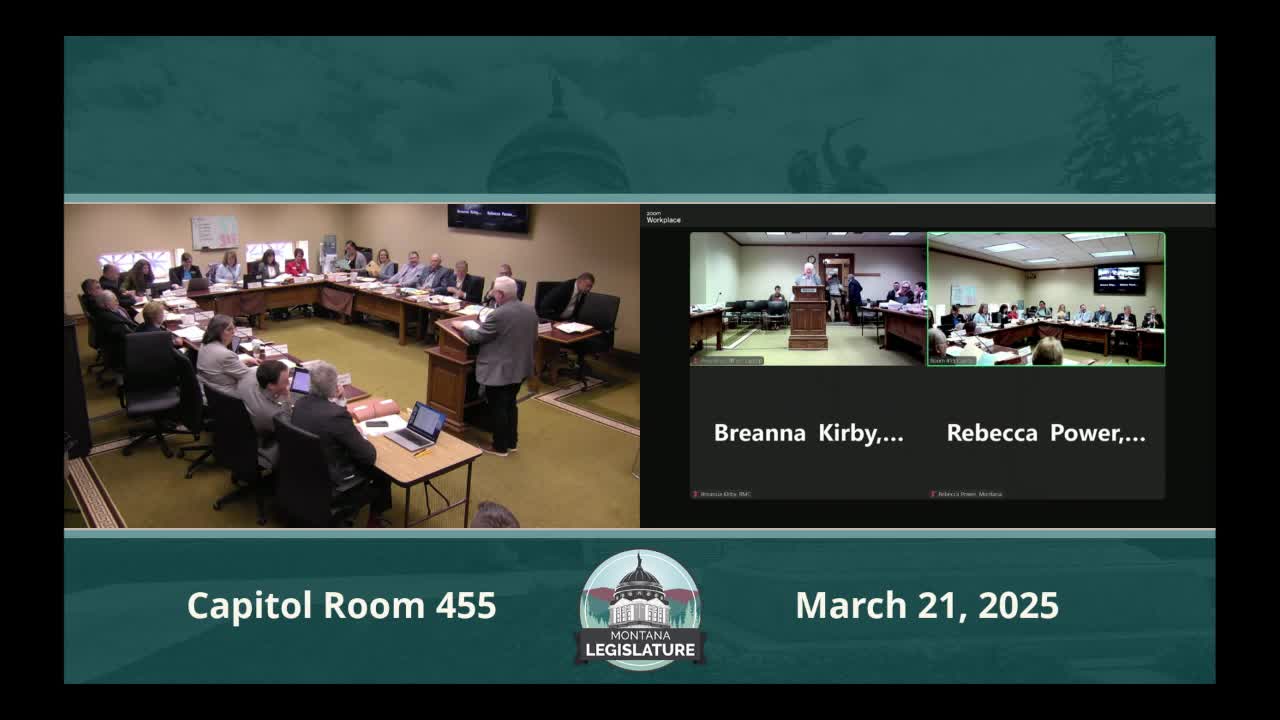Article not found
This article is no longer available. But don't worry—we've gathered other articles that discuss the same topic.
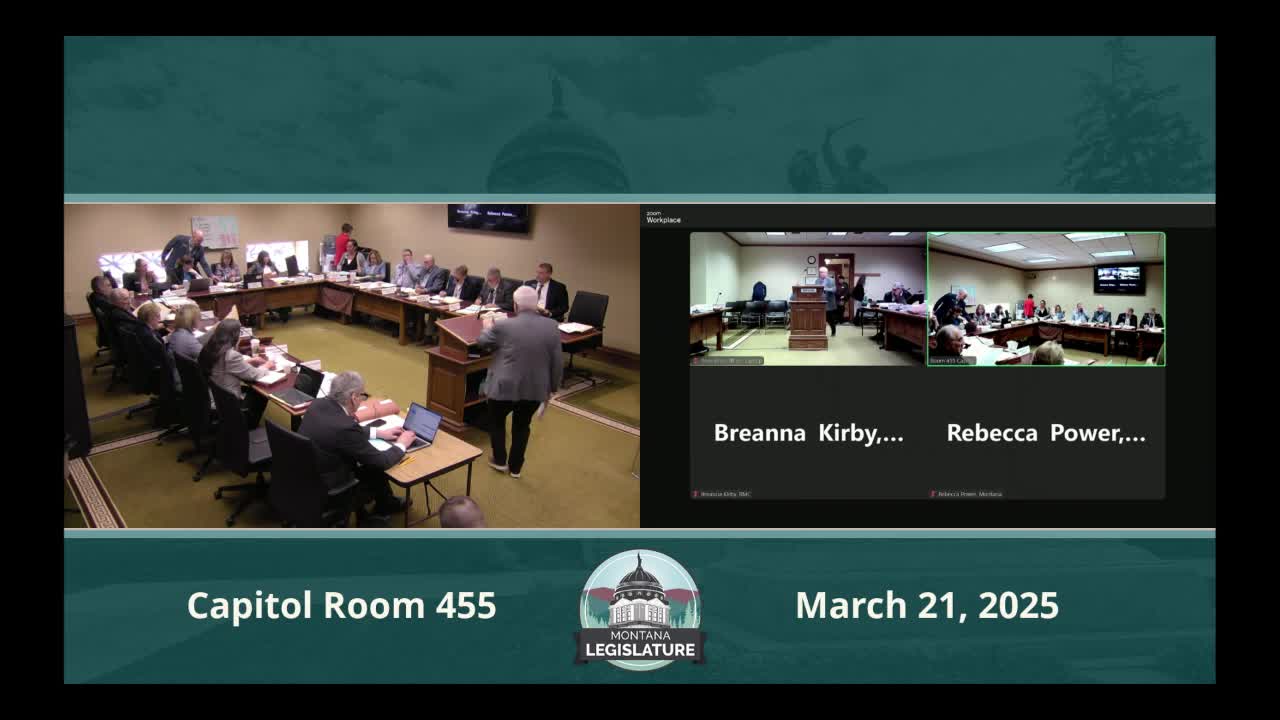
Clerks press for earlier petition turn‑ins; opponents warn new burden on volunteers and electors
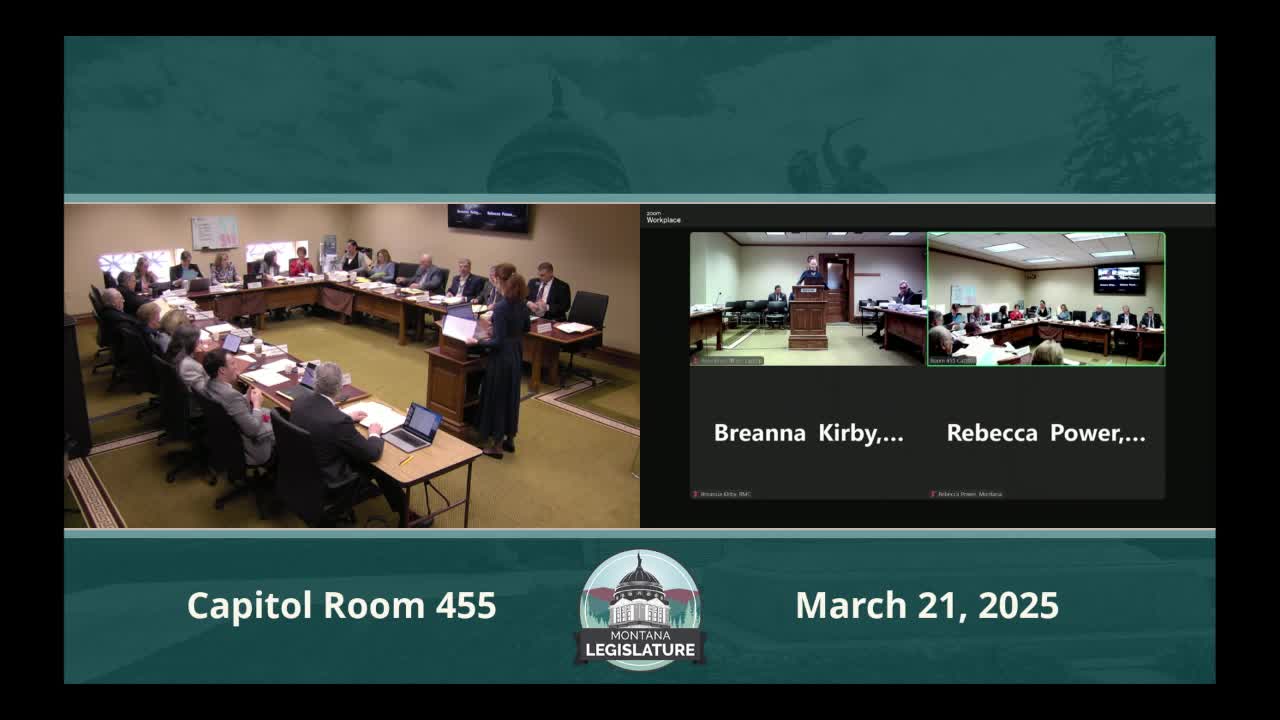
Bill to prevent survivorship benefit cutoff for 18‑year‑old high‑school students wins support at hearing
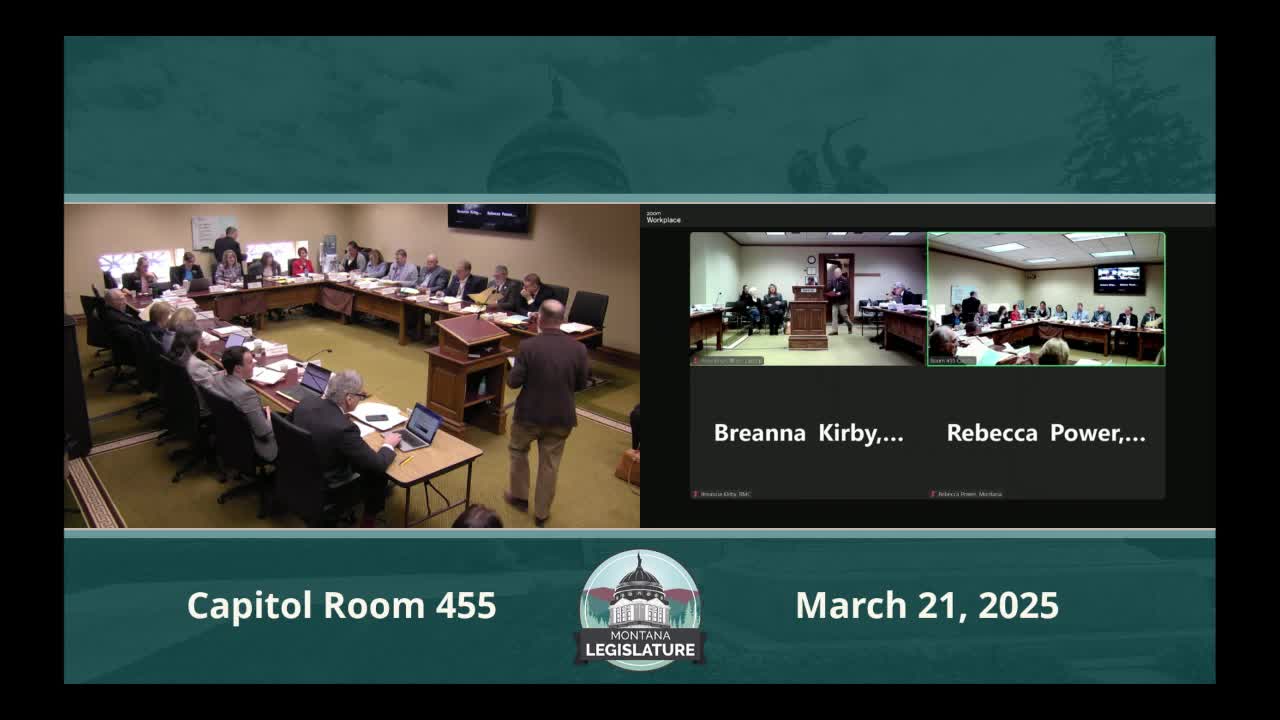
Committee hears cleanup to cooperative statutes to clarify for-profit and out-of-state co-ops
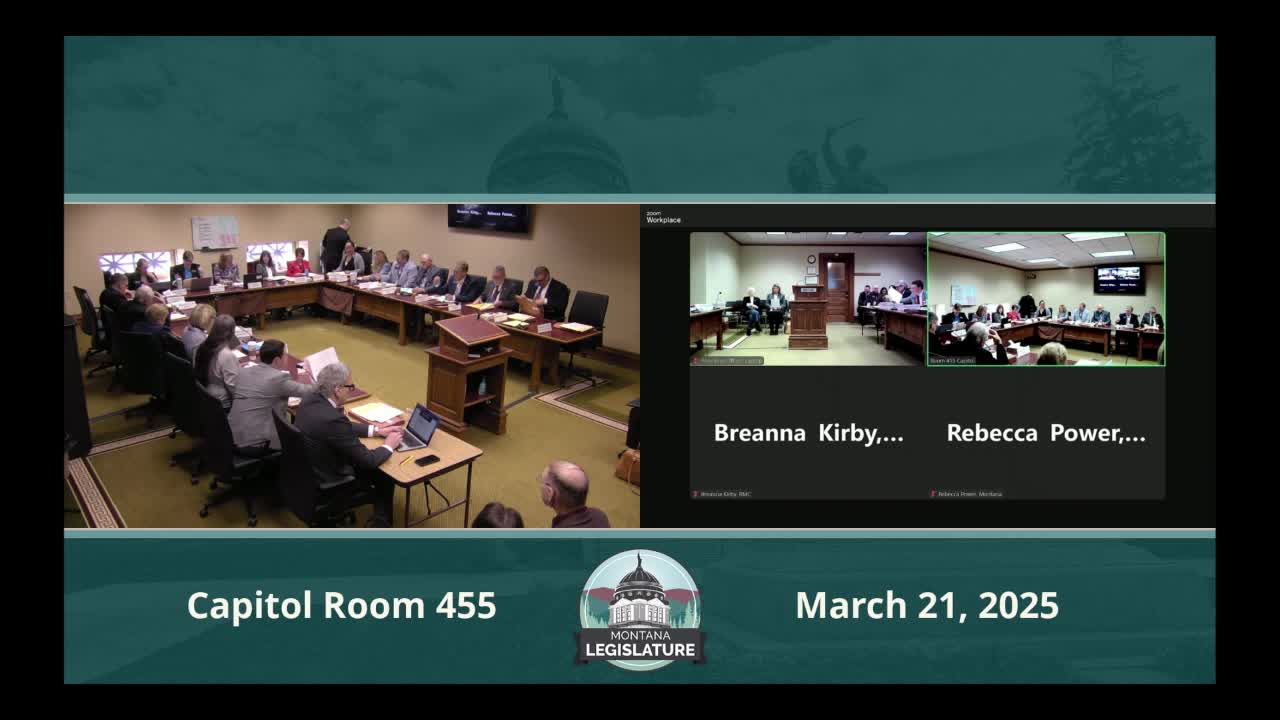
Montana hearing considers constitutional change to limit voting to U.S. citizens
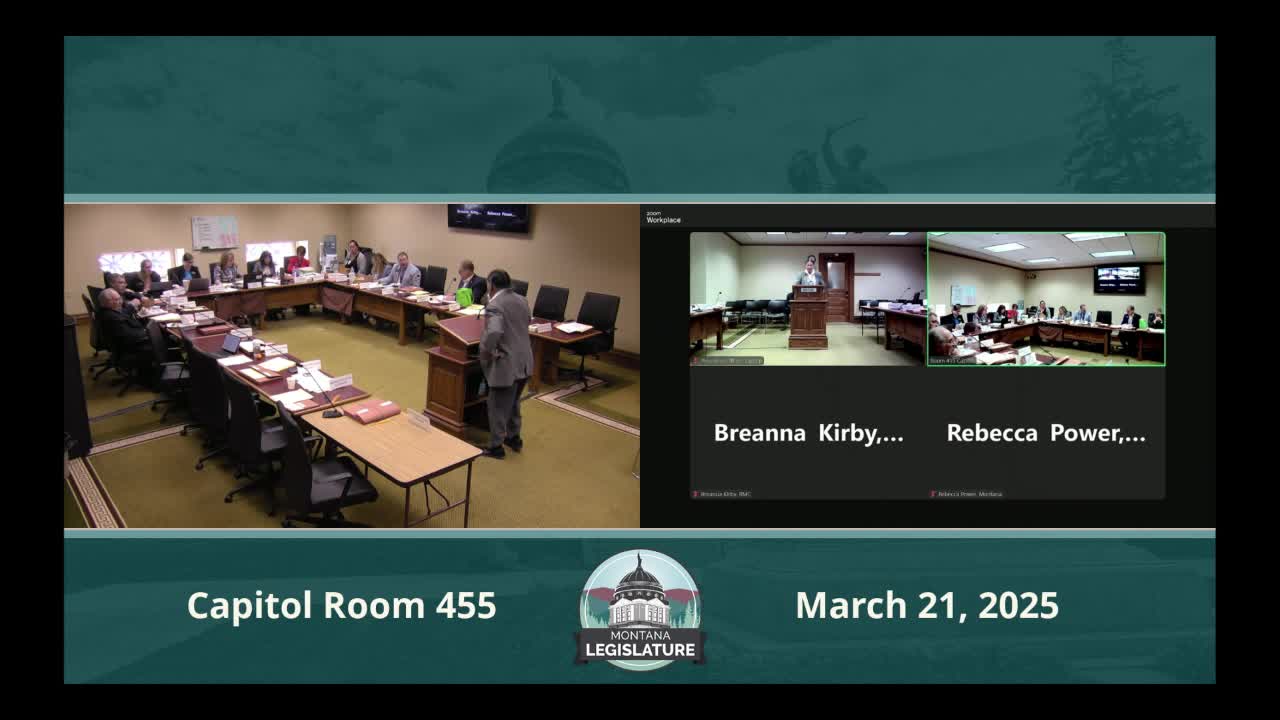
Tribal leaders and sponsor back bill requiring statewide reporting of federal funds routed through state agencies
